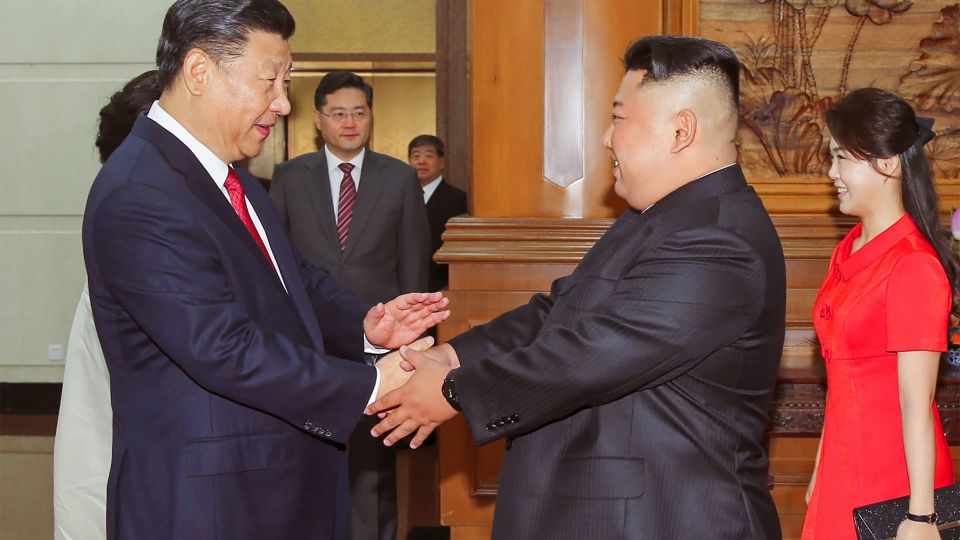September 7, 2018
A visit without Xi is now unlikely to achieve any positive results on the nuclear issue, say analysts.
Chinese President Xi Jinping is sending a special envoy to North Korea’s 70th founding day celebrations instead of attending them himself, in an apparent change of mind that has much to do with the impasse in the Korean peninsula nuclear issue.
There are other issues requiring his attention, not least of which is the likely imposition this week of yet more tariffs on as much as another US$200 billion (S$275 billion) worth of Chinese goods by the United States.
However, what is key to his decision not to attend the celebrations and pay a return visit to North Korean leader Kim Jong Un – who has visited China three times this year – is that it would unlikely achieve results on the nuclear issue, analysts say. “If he goes, there is a need to have positive results,” said Peking University Professor Jia Qingguo.
The Straits Times last month had obtained credible information that Mr Xi would make the trip at the invitation of Mr Kim. However, on Tuesday, the Chinese Communist Party announced that Mr Li Zhanshu, the third-ranked official in the party and chairman of the National People’s Congress, China’s Parliament, will be travelling to Pyongyang on Saturday as Mr Xi’s special representative to the event.
While Mr Li is a senior official, he is not the chief person in charge of foreign affairs nor is he involved in foreign policy making, so he and Mr Kim could avoid the nuclear issue, said Professor Shi Yinhong of Renmin University. “He can convey Mr Xi’s views,” added Prof Shi.
Still, Mr Li is a close ally of Mr Xi and a senior member of the Communist Party, so his visit can serve to consolidate the improving ties between the two sides.
Prof Shi noted that China needs to strengthen its relations with North Korea which are fragile although they are improving after reaching a low point last year.
China was irritated by Mr Kim’s intensifying of his country’s nuclear and missile development programmes that led to tensions in North-east Asia and with the US. Mr Kim was angered by Beijing’s imposing of ever-heavier sanctions against his country in response to those programmes.

What is key to his decision not to attend the celebrations and pay a return visit to North Korean leader Kim Jong Un – who has visited China three times this year – is that it would unlikely achieve results on the nuclear issue, analysts say.
Things have taken a turn for the better this year after Mr Kim’s visits to Beijing. While it is important for Mr Xi to visit Pyongyang to cement ties further, analysts agree that the conditions are not right at the moment for him to do so.
Prof Jia noted that a very important part of China’s North Korea policy is the nuclear issue which has become deadlocked with no progress in sight.
The initial sense of progress towards resolving the nuclear issue after the summit between Mr Kim and US President Donald Trump in Singapore in June has given way to an impasse, if not the dangerous situation of last year when the threat of conflict was strong. While the US wants to see more done at a faster pace by North Korea with regard to denuclearisation, Pyongyang wants reciprocal and incremental action on both sides. Neither is willing to give way.
Mr Trump last month ordered Secretary of State Mike Pompeo to cancel a planned trip to Pyongyang saying there was not enough progress in denuclearisation talks.
He later suggested that China might be putting pressure on Pyongyang because of its trade dispute with the US. “China probably has a great influence over North Korea,” he told reporters then.
Under such circumstances, if Mr Xi were to visit Pyongyang now, it would look like China is preventing North Korea from denuclearising, said Prof Jia, adding that it is not very good for the Chinese leader to do so now. Analysts think that for Mr Xi to make the trip, there also has to be significant action.
“It would be more suitable for Mr Xi to visit… when China can play a better role in pushing the nuclear issue forward,” said China Foreign Affairs University Professor Su Hao.


